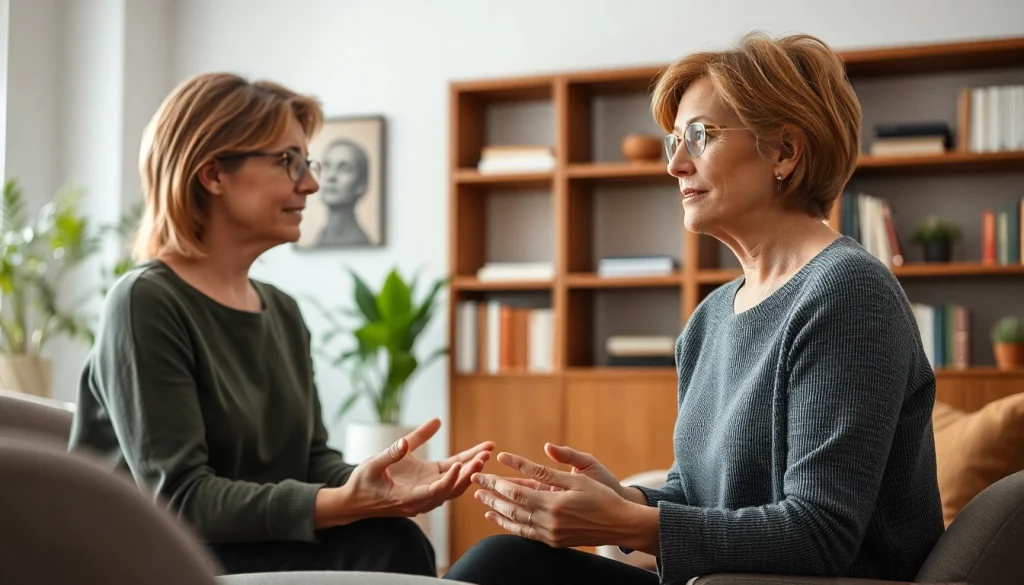Understanding the Role of an Attachment Theory Specialist in Effective Therapy

Introduction to Attachment Theory and Its Importance
Attachment theory is a psychological model that describes the dynamics of long-term human relationships. It focuses on the bonds between people, especially the emotional ties between children and their caregivers. Understanding attachment theory is pivotal for forming strong relationships and navigating the emotional challenges of life. By working with an attachment theory specialist, individuals can gain insights that foster personal growth, improve interpersonal relationships, and promote mental well-being.
The Origin of Attachment Theory
Attachment theory was developed in the mid-20th century by British psychologist John Bowlby. His work was grounded in the observations of children’s emotional responses to separation from caregivers and the resultant impact on their development. Bowlby posited that the bonds formed in early childhood have profound implications for behavior and emotional health throughout life. Mary Ainsworth further expanded the theory with her “Strange Situation” experiments, identifying different attachment styles: secure, anxious-ambivalent, and avoidant. This research laid the groundwork for contemporary therapeutic practices that prioritize emotional connection and understanding in nurturing relationships.
Key Concepts and Definitions
Attachment theory revolves around several key concepts:
- Attachment Styles: These refer to the patterns of attachment developed in childhood, which can affect adult relationships. Secure, anxious, avoidant, and disorganized are the main styles.
- Secure Base: This concept relates to the idea that a primary caregiver serves as a secure base for children, allowing them to explore their environment while knowing they have a safe place to return.
- Internal Working Models: These are mental representations of self and others that influence how individuals perceive and interact in relationships.
How Attachment Theory Influences Therapy
In therapeutic contexts, attachment theory offers a lens through which therapists can understand client behavior and emotional responses. Therapists trained in attachment theory can address issues such as trust, intimacy, and emotional safety, guiding clients to develop healthier relationships. This focus is particularly valuable in therapies such as Emotionally Focused Therapy (EFT), which aims to create secure attachments between partners to enhance emotional intimacy and relationship satisfaction.
What Does an Attachment Theory Specialist Do?
An attachment theory specialist provides therapy grounded in the principles of attachment theory. Their work is multifaceted, addressing individual, couple, and family dynamics.
The Role in Individual Therapy Sessions
In individual therapy, attachment specialists help clients uncover how their attachment styles influence their current relationships and emotional health. By understanding their past experiences, clients can learn to recognize patterns that hinder their growth and foster healthier behaviors in the present. For example, a client with an anxious attachment style may benefit from exploring their fear of abandonment and developing strategies to build self-esteem and self-soothing techniques.
Supporting Couples Through Attachment Dynamics
Attachment specialists also play a crucial role in couples therapy. They work with partners to improve communication and emotional connection by exploring the underlying attachment styles that affect their relationship. By facilitating discussions around unmet needs and fears, therapists guide couples toward greater empathy and understanding. This process often includes exercises designed to foster secure attachment behaviors, such as expressing vulnerability and validating each other’s feelings.
Working with Families to Enhance Relationships
In family therapy, attachment theory specialists address the interplay of attachments among family members. They may facilitate discussions that help parents recognize their attachment styles and how these impact their parenting. Workshops and family sessions often incorporate experiential exercises aimed at strengthening emotional bonds. The goal is to create an environment where all family members feel supported, safe, and connected.
Identifying an Attachment Theory Specialist: Key Qualities
When seeking an attachment theory specialist, there are several important qualities and credentials to consider.
Essential Certifications and Qualifications
An effective attachment theory specialist typically holds advanced degrees in psychology or social work, alongside certifications in attachment-focused modalities. For example, many therapists pursue additional training in Emotionally Focused Therapy (EFT), which is closely aligned with attachment practices. Organizations such as the Attachment-Focused Treatment Institute offer certifications that demonstrate a therapist’s commitment to this specialized field.
Experience and Areas of Focus
Experience matters when identifying a therapist who specializes in attachment theory. Prospective clients should look for therapists who have a deep understanding of different attachment styles and their practical implications in therapy. Notably, a therapist who works primarily with couples may be beneficial for clients looking to enhance romantic relationships, while someone with a focus on family therapy may be better suited for those wanting to address family dynamics.
Personal Traits that Matter in Therapy
Beyond certifications and experience, certain personal traits can greatly enhance the therapeutic experience. Empathy, patience, and the ability to provide a non-judgmental space are crucial. Clients should feel understood and supported as they explore their emotional landscapes, and a therapist’s ability to establish a warm and secure therapeutic relationship can significantly impact treatment outcomes.
Benefits of Working with an Attachment Theory Specialist
Engaging with an attachment theory specialist can offer numerous benefits that extend beyond traditional therapy.
Improving Personal Relationships
One of the primary advantages of working with an attachment specialist is the improvement in personal relationships. Understanding one’s own attachment style and that of others can lead to healthier interactions. Clients learn to set boundaries, communicate effectively, and express their needs openly, which fosters mutual respect and understanding.
Healing from Past Trauma
Attachment theory also provides a framework for healing from past trauma. Many individuals carry forward wounds from their early attachment experiences, which can manifest as anxiety, depression, or relationship difficulties. Specialists help clients process these experiences by unraveling how early attachments inform current behaviors and emotional responses. This therapeutic journey often leads to profound healing and personal growth.
Enhancing Emotional Intelligence
Working with an attachment specialist can significantly enhance emotional intelligence. Clients learn to recognize their own emotions, understand the emotions of others, and navigate complex interpersonal dynamics. This increased awareness helps individuals respond to emotional cues more effectively, fostering healthier and more fulfilling relationships across all areas of life.
Finding the Right Attachment Theory Specialist Near You
Finding the right attachment theory specialist is a vital step in commencing a meaningful therapeutic journey. Here are some actionable strategies to identify an appropriate professional.
Researching Local Professionals
Start by researching local professionals specializing in attachment-based therapies. Utilize online directories, community resources, and local mental health organizations to gather a list of potential therapists. Pay attention to their credentials, specialties, and therapeutic approaches. Websites like Psychology Today offer searchable databases where you can filter therapists by location and specialties.
Utilizing Online Platforms and Resources
Additionally, take advantage of online platforms that connect individuals with licensed therapists. Websites like BetterHelp or Talkspace allow individuals to connect with therapists specializing in attachment theory and related fields. Be sure to review client testimonials and therapist profiles to find someone that resonates with your needs and values.
Red Flags to Watch For When Choosing a Therapist
When selecting an attachment theory specialist, it’s essential to be vigilant about potential red flags. Avoid therapists who lack appropriate credentials or experience specific to attachment theory. Be wary of those who rush the therapeutic process or dismiss your emotional experiences. Effective therapist-client rapport takes time to build, and any signs of disrespect or lack of empathy could indicate an unsuitable match.







